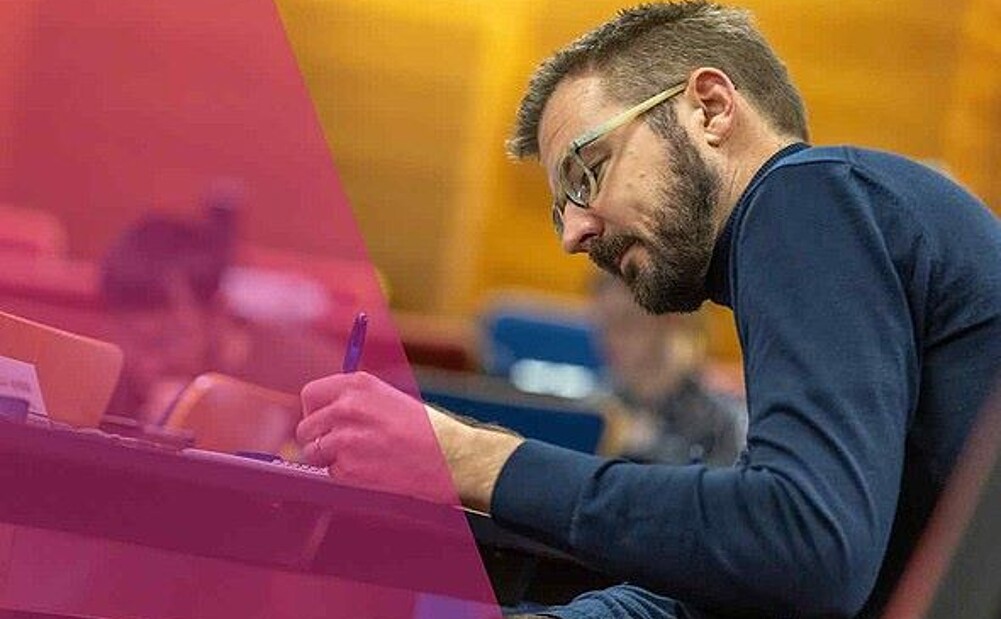

Employee development is absolutely pivotal for sustained business success. Researchers, practitioners, and industry leaders all agree that overlooking employee development for short-term gains limits your organisational capabilities and has a concrete impact on your bottom-line.
Replacing trained employees can cost your business between 33% to 213% of their annual salary, and companies with strong learning cultures see a remarkable 30-50% rise in retention rates.
Simply put, investing in employee development is necessary, and as Rotterdam School of Management, Erasmus University (RSM) is positioned as the best business school in the Netherlands for people development, we want to offer a complete guide to developing your teams, it’s benefits, and how it can be implemented in your organisation to thrive in your industry.
Before beginning the process of implementing employee development into your organisation, it’s vital to understand exactly what it is, and why it’s so beneficial for long-term business growth.
Simply put, employee development – also referred to as people development - is a strategic process aimed at collectively enhancing the knowledge, skills and capabilities of the workforce.
Through a variety of learning methods, employees are enabled to excel in their roles, easier adapt to challenges, and are empowered to better contribute to the organisation’s success.

Investing in employee development programmes leads to a wide variety of benefits for your organisation. From short-term gains in productivity to long-term sustainable growth and employee wellbeing, your efforts toward developing your teams will bring you closer to your organisational goals. Below are the five key benefits you need to know before implementing an employee development initiative:
Investing in employee development programmes demonstrate a commitment to individual growth, boosting morale, and overall perceptions of job satisfaction. When your employees feel valued and supported, they are more engaged, motivated, and eager to contribute their best efforts to your organisation.
By investing in their professional growth, your people are more likely to develop a strong sense of loyalty to your organisation. Higher job satisfaction and opportunities for advancement reduce turnover rates, fostering a stable and dedicated workforce, and lowering operational costs related to recruiting and onboarding new employees.
Employee development programmes nurture creativity and innovative thinking, directly in programmes targeted towards innovation, and indirectly through collaborative learning methods and discovering new perspectives. As employees gain new skills and perspectives, they become better equipped to devise innovative solutions to challenges, giving their organisation a competitive edge.
Equipped with updated skills, increased intrinsic motivation, and greater creative capabilities, employees become more efficient and effective in their roles, leading to increased productivity and overall organisational performance.
Organisations that prioritise employee development attract top talent seeking growth opportunities and professional advancement. A strong reputation for investing in employee growth serves as a powerful recruitment tool, bringing in skilled individuals who are eager to contribute to the organisation's success.
There is an abundance of learning and development solutions for businesses, and as a learning and development manager, it can be difficult to identify exactly what strategies will best develop your people. Here are the five most popular and effective methods for implementing employee development programmes in your organisation:
Investing in and implementing a combination of these strategies allows organisations to create comprehensive and impactful employee development programmes that not only enhance individual skills, but also foster a culture of continuous learning and growth, benefiting both employees and the organisation as a whole.
Employee wellbeing and feelings of growth can be assessed through surveys or interviews to gauge participants' satisfaction with the development programme. Feedback on improved job satisfaction, increased motivation, and perceived personal growth can indicate the programme's positive impact on the overall wellbeing of employees.
Productivity metrics, such as individual or team performance, output, and efficiency, can be compared before and after the employee development programme. A significant increase in productivity post-training indicates that the programme has successfully enhanced employees' skills and abilities.
By conducting pre- and post-programme self-assessments, employees can gauge their confidence in specific skills (e.g., communication, leadership). An improvement in perceived confidence signifies the programme's effectiveness in boosting participants' skillset and self-assurance.
Employee development is undeniably pivotal for long-term business success. As a manager, your team’s growth should be at the core of your concerns. Here are our four key takeaways from this comprehensive guide to people development:

No matter how you implement your employee development programme, focusing on bringing engaging learning experiences to your workforce will bring the best out of your people, and this will have a demonstrable positive impact on your organisation.
RSM provides in-depth, innovative learning solutions for organisations, from in-company training courses to fully co-created customised learning programmes. As the best business school in the Netherlands for customised executive education, RSM is a great choice as a learning partner to support your teams, and your organisation's goals.

Key Account Manager

Key Account Manager

Key Account Manager